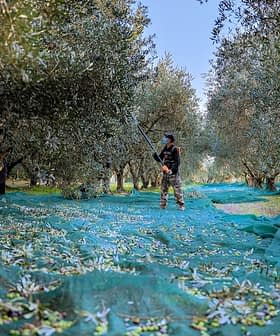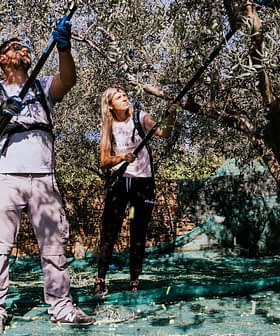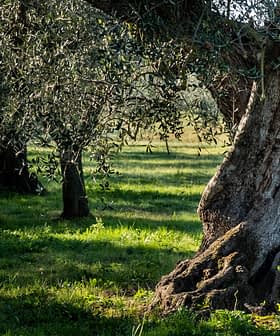TerraOlivo Completes 8th Edition
Despite the recent loss of TerraOlivo's president, Raul Castellani, the competition in Israel attracted 630 olive oils from 20 countries.
Last week TerraOlivo wrapped up the 8th edition of its international olive oil competition. With the recent loss of the president of TerraOlivo, Raul Castellani, it was not an easy task to ensure the event ran smoothly. However, with dedication and hard work, Moshe Spak, Eyal Hasson, Leonardo Castellani and Antonio G. Lauro ran the competition admirably.
The contest drew more than 630 olive oils from 20 countries. Spain was the grand winner taking home 111 prizes — four in the Top Ten category.
Jurors of the competition agreed that the difficult harvest year was evident in many samples, noting indications of excessive heat, fruit that ripened early and oils with low stability.
Despite a tough year, Israeli producers were able to present 131 oils and took home over 40 awards.
The president of the Agro-nutritional Partnership of the Region of Crete, Manolis Chnaris, attended in a show of support for the participating Greek producers and the competition itself. During a speech at the awards ceremony, Chnaris expressed the importance of quality olive oil and his gratitude for the collaboration between the Crete and Israeli competitions.
For jurors, mornings were occupied with tasting flights of about 33 oils per day. However, afternoons were spent in the field to promote information exchange between panel members.
A special trip was hosted by the Israeli Olive Oil Board to Beit Gemal, a monastery near Beit Shemesh, and to Kibbutz Revadim which produces local varieties like Barnea and Souri.
Zohar Kerem from the Hebrew University of Jerusalem first spoke to the group at Beit Gemal on the historical importance of the area. It was here where David defeated Goliath and where olive trees had been domesticated thousands of years ago.
Kerem also explained the results of a very interesting study that was carried out in the region. The study revealed that the olive trees now planted near the monastery had roots from many Italian species with local cultivars grafted onto the foreign roots. It is believed that the Italian varieties were introduced by traveling monks.
Adi Naali, the CEO of the Israeli Olive Oil Board and his team explained modern Israeli production and the work that the Board is doing to ensure quality products and healthy markets. He stressed the importance of using a seal of quality, traceability, and good branding. He went on to say that it is when you give consumers quality, that producers can demand a fair price for their hard work.
The afternoon was concluded in the groves of Kibbutz Revadim with an olive oil tasting and discussions lead by Ayala Noy Meir and Ehud Soriano on the production of local varieties.
The trees surrounding the group were laden with new fruit starting to plump. It is this fruit that will be used for this coming harvest´s olive oil and just perhaps it will be a winner in TerraOlivo 2018.








